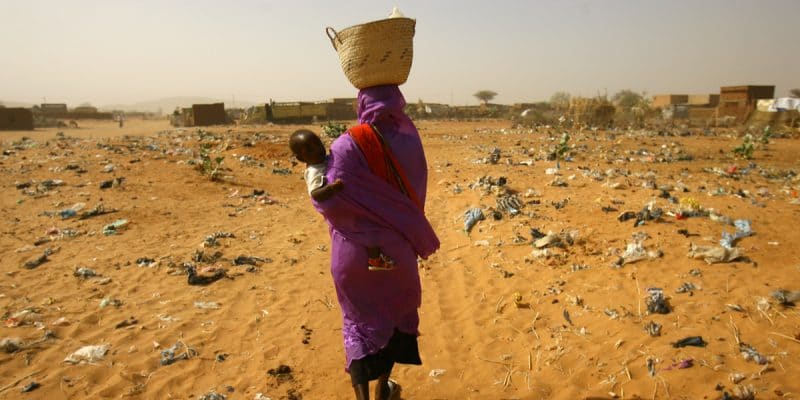The number of food insecure people in the south of Madagascar is worrying. Nearly 1.14 million people, according to the World Food Program (WFP). This situation is due to a relentless drought that is drying up crops and waterways. The WFP calls it the world's first famine due to climate change.
Several hunger alerts have been issued from southern Madagascar. The region has been hit hard by three successive years of severe drought, forcing families in rural communities to take desperate measures to survive. The World Food Programme (WFP) estimates that nearly 1.14 million people in the region are struggling to eat their fill due to what could become the world’s first famine caused by climate change.
The Manambolo River, one of the pillars of local agriculture, is completely dry, for more than 100 kilometres. The riverbed has left burning sand, and crops along its course have disappeared due to lack of irrigation. “The impact of the drought varies from place to place. While some communities have not had a decent rainy season for three years, the situation can be even worse 100 kilometres away. I have seen villages surrounded by parched fields and tomato plants that are completely yellow or even brown because of the lack of water,” said Alice Rahmoun, WFP’s communications officer.
Famine threatens more than 80 million Africans
It is not only in southern Madagascar that climate change is causing food insecurity. The phenomenon is rampant in several other countries on the continent. In its latest annual report published on November 23rd, 2021, the Food and Agriculture Organization of the United Nations (FAO) indicates that in sub-Saharan Africa, more than 80 million people may no longer be able to access healthy food because of climate change.
“There are people dying of hunger and its consequences in Africa. When you are hungry, your ability to resist disease is much lower. The problem is that we should not wait until there is a declaration of famine in a country to actually act. You have to act much earlier, when you show serious trends in the number of people who are acutely food insecure,” says Dominique Burgeon, FAO’s director in Geneva, Switzerland.
Read also-MADAGASCAR: when drought leads to unprecedented famine
To remedy famine crises in Africa in the long term, the UN organization proposes strengthening the resilience of populations to climate change. In southern Madagascar, one of the two components of the WFP’s activities, in collaboration with its humanitarian partners and the Malagasy government, consists of building irrigation canals, reforesting plots of land and providing micro insurance to small farmers who have no crops.
Boris Ngounou







